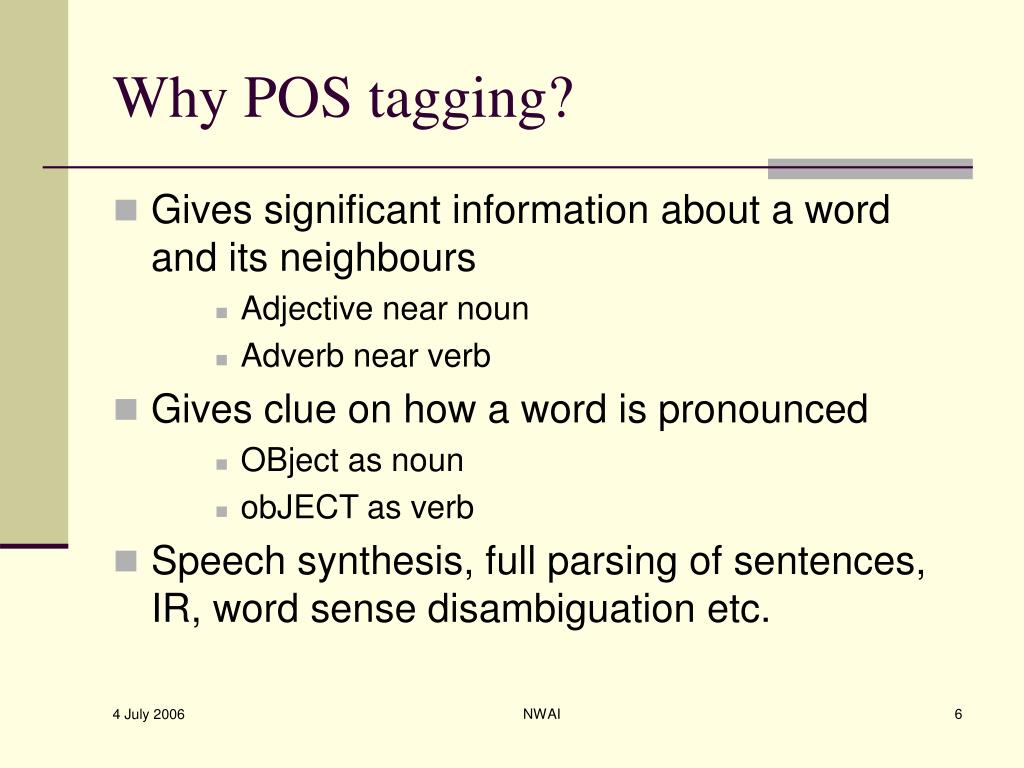
The collection of tags used for a particular task is known as a tag set.Ī part-of-speech tagger, or POS-tagger, processes a sequence of words, and attaches a part of speech tag to each word. Parts of speech are also known as word classes or lexical categories. The process of classifying words into their parts of speech and labelling them accordingly is known as part-of-speech tagging, POS-tagging, or simply tagging. NLTK includes more than 50 corpora and lexical sources such as the Penn Treebank Corpus, Open Multilingual Wordnet, Problem Report Corpus, and Lin’s Dependency Thesaurus.NLTK supports classification, tokenization, stemming, tagging, parsing, and semantic reasoning functionalities.NLTK is intended to support research and teaching in NLP or closely related areas, including empirical linguistics, cognitive science, artificial intelligence, information retrieval, and machine learning.A software package for manipulating linguistic data and performing NLP tasks.

POS TAGGING PYTHON CODE HOW TO
This is nothing but how to program computers to process and analyze large amounts of natural language data. Natural language processing is a sub-area of computer science, information engineering, and artificial intelligence concerned with the interactions between computers and human (native) languages. Categorizing and POS Tagging with NLTK Python


 0 kommentar(er)
0 kommentar(er)
